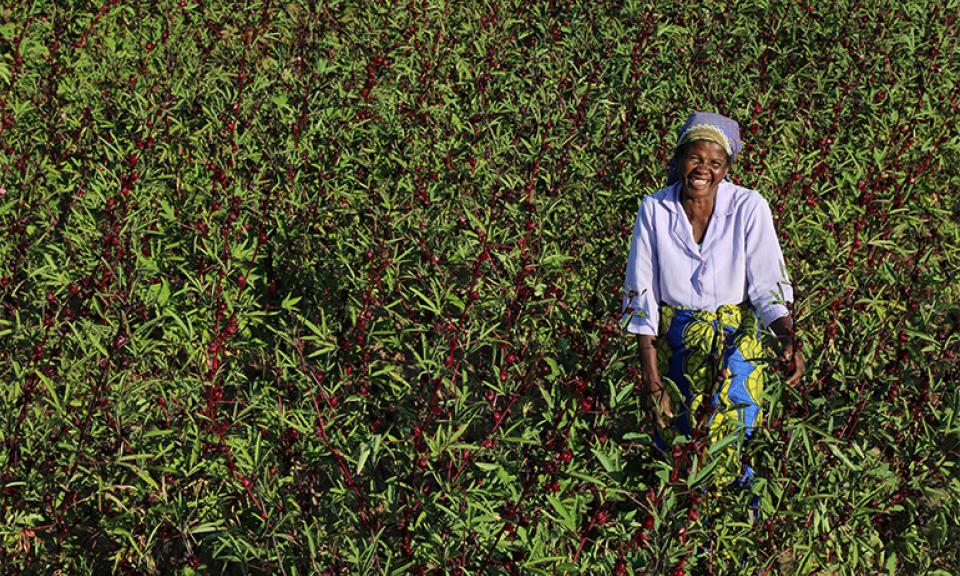
Published
Blog type
“We believe that every entrepreneur has an environmental and social responsibility, ” according to Misha Patel and Anusha Mahtani (MSc Management 2016) founders of Zola Foods. This health food startup produces and exports sustainable superfoods via ethical farming methods from Africa to the Middle East. We spoke to Misha and Anusha about why they are committed to creating a fair-trade, ethical supply chain that benefits both the local community and the consumer.
Tell us more about Zola Foods
“Zola Foods is a sustainable health food brand and social enterprise that aims to mobilize the trade of nutrient-dense superfoods from Africa to the Middle East. We commercialise innovative indigenous species such as baobab, moringa and hibiscus and market them in mainstream food, drink and cosmetic industries,” explains Misha.
We are passionate about building Zola Foods to generate profit with a purpose. We founded Zola Foods in 2018 and are committed to supporting a sustainable food supply chain.
The women met while studying at Imperial and found a common interest in their passion for healthy living and eating. However living in in a big city, this proved to be more difficult than expected. “We quickly realised how expensive and time consuming it could be to maintain a healthy diet living in London.”
It wasn’t until Misha returned to her home country of Kenya that they came across a solution to this: “When I went back to Kenya I discovered the miracle superfoods baobab and moringa. These products are nutrient dense and have numerous health benefits.” With Misha based in Kenya and Anusha in Dubai, the idea for Zola Foods was born. “The demand for healthy foods globally is on the rise, in the UAE 87% of people use foods to forestall health issues.”
“After more research we were inspired by the impact our business could have on employment in local African communities as well as the environment and the health of our global customers. We have now developed a competitive advantage by building our own ethical supply chain that supports female farmers, preserves biodiversity and has a low carbon footprint. Our vision is to build a fair trade ethical supply chain of African superfoods.”
Launching Zola Foods
Misha has a background as a Global Operations Excellence Analyst at Shell, and Anusha is a Senior Education Advisor in Dubai, so setting up their own business was a huge departure from these roles. The women drew on their time at Imperial to support them through their entrepreneurial journey. “Presenting our coursework, working on real consulting cases and the entrepreneurship module during our time at Imperial gave us the practical experience to think outside the box, think on our feet and take multiple angles to problem solving. “
“We are passionate about building Zola Foods to generate profit with a purpose. We founded Zola Foods in 2018 and are committed to supporting a sustainable food supply chain.”
“Our aim is to empower, employ and educate local farmers living in rural areas to create a sustainable and organic agri-business that promotes economic growth and enhances the health and well-being of the communities we work with. Knowing we are making a positive difference to the lives of others is an amazing feeling.”
The journey to market wasn’t always an easy one however, with the challenge of international red tape to navigate first. “Receiving licencing on exporting products out of Zimbabwe has been particularly challenging due to political and economic instability. Despite several hurdles we have persevered and become pioneers in exporting hibiscus, moringa and baobab from Zimbabwe to the Middle East.”
Advice to budding entrepreneurs
“We’ve learned a few key lessons along the way, such as always have courage to persevere and innovatively problem solve – there is always a solution to every hurdle. The highlight for us was building a supply chain and mobilizing fair trade to launch and sell our first three products online in the UAE, which initially seemed a daunting prospect.”
“Our advice to other budding entrepreneurs is that you should be confident in your decisions and abilities, and be willing to come out of your comfort zone to seek new opportunities. We also believe it’s important to find a co-founder with complementary skills, a shared vision and dedication to building your brand and product.”
Where do you see yourself and the business in 5 years’ time?
“We aim to grow our product range to sell raw products, granolas, mueslis, teas and also enter the cosmetic and beauty range. But most importantly our business model addresses many environmental and social concerns that aim to preserve biodiversity and indigenous conversion methods – we hope that we are paving the way for similar organisations to make similar sustainable changes to their business models. We envision a world where everyone can easily incorporate healthy foods into their diets by selling our products worldwide.”
